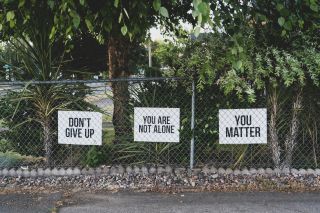Anger
Anger and Emotion: What's Really Setting Us Off?
Taking a mindful approach to exploring why we are angry.
Posted May 8, 2024 Reviewed by Hara Estroff Marano
Key points
- Anger is a secondary emotion.
- Anger is a warning sign that lets us know there is an issue to address.
- Knowing what we are feeling will help us to address the source of our anger.
Anger can hit us when we least expect it. There are some people who get angry and not know what they are angry about. The reaction can not only affect us in our profession lives but out personal lives as well. If we are able to take time to explore our emotions, we may be able to use out anger as a tool.

Anger Is a Secondary Emotion
Many people have heard that anger is a secondary emotion. It comes on us after something else has made us feel a particular way. Imagine walking through a store and somebody is blocking an aisle so that you can’t get through. Some people are going to get mad at this, but why are they getting mad? It could be that they are feeling disrespected, and that emotional response is causing the anger.
Under the anger we are feeling is another emotion that is triggering the anger. This is what makes anger a secondary emotion. There are very few circumstances in which anger arises out of nowhere. Recognizing that anger is a secondary emotion can allow us to identify and process the underlying emotions.
Anger As A Tool
Just like anxiety, anger can let us know that something is wrong or there is an issue that needs to be addressed. For the person in the store aisle, what's wrong is that there is a person blocking the way through. Anger lets you know that you need to address the underlying issue to make your anger go away. In this case, simply letting the person know that you would like to get through may do the trick.
There are more complicated examples of how anger can be a warning sign or a tool to let people know that there is a problem. You are at work and you think a coworker is getting away with everything or taking advantage of the system. Their wrongdoing might make you feel frustrated or hopeless, depending on the situation.
Veling, Ruys, and Aarts note that anger can be used as a motivator to attain what a person needs. This can often be seen in military training. In basic training, drill sergeants will often get recruits angry so that they will use its energy to attain the goals set for them. Their reward is the accomplishment of the goal despite the setback that they may have faced.
Using Mindfulness to Address Anger

Taking time to sit with our emotions and think about what we are feeling is an important tool to have. Many people don’t take the time to look inward and really think about what they are going through. Using mindfulness to address anger can assist in solving problems underlying the anger or, at the very least, allow us to have a conversation about what we are really feeling.
When we recognize what specific emotion or emotions a situation is creating, we can use that knowledge to shape the way to address that situation. If I know that I am feeling angry because I just saw in the news that there has been violence somewhere in the world, I am better equipped to reduce my anger by processing those feelings of sadness.
There are many negative things in the news today making a lot of people angry—wars, protests, financial crises. Many people are angry because they are scared and frustrated. Novaco notes that such experiences can trigger emotions such as fear and hopelessness shrouded in anger.
People often ruminate when they get angry, focusing on what made them angry and not the source of the anger. This is where mindfulness can be helpful. In reflecting on the situation that caused the anger, they can think about the emotion they are actually feeling and put a stop to the rumination caused by the anger. Stopping rumination can in turn decrease anger, hostility, and aggression.
Everybody can benefit from increasing the amount of time that they spend working on mindfulness. There is a definite benefit to looking inwards, it tends to focus people and allow them to hold themselves accountable for the situations that they encounter in life. Taking time to be with ourselves and our emotions can be just the thing that we need to decrease anger.
References
Borders, A., Earleywine, M., & Jajodia, A. (2010). Could mindfulness decrease anger, hostility, and aggression by decreasing rumination? Aggressive Behavior: Official Journal of the International Society for Research on Aggression, 36(1), 28-44.
Novaco, R.W. (1976). The functions and regulation of the arousal of anger. American Journal of Psychiatry, 133(10), 1124-1128.
Veling, H., Ruys, K.I., & Aarts, H. (2012). Anger as a hidden motivator: Associating attainable products with anger turns them into rewards. Social Psychological and Personality Science, 3(4), 438-445.




